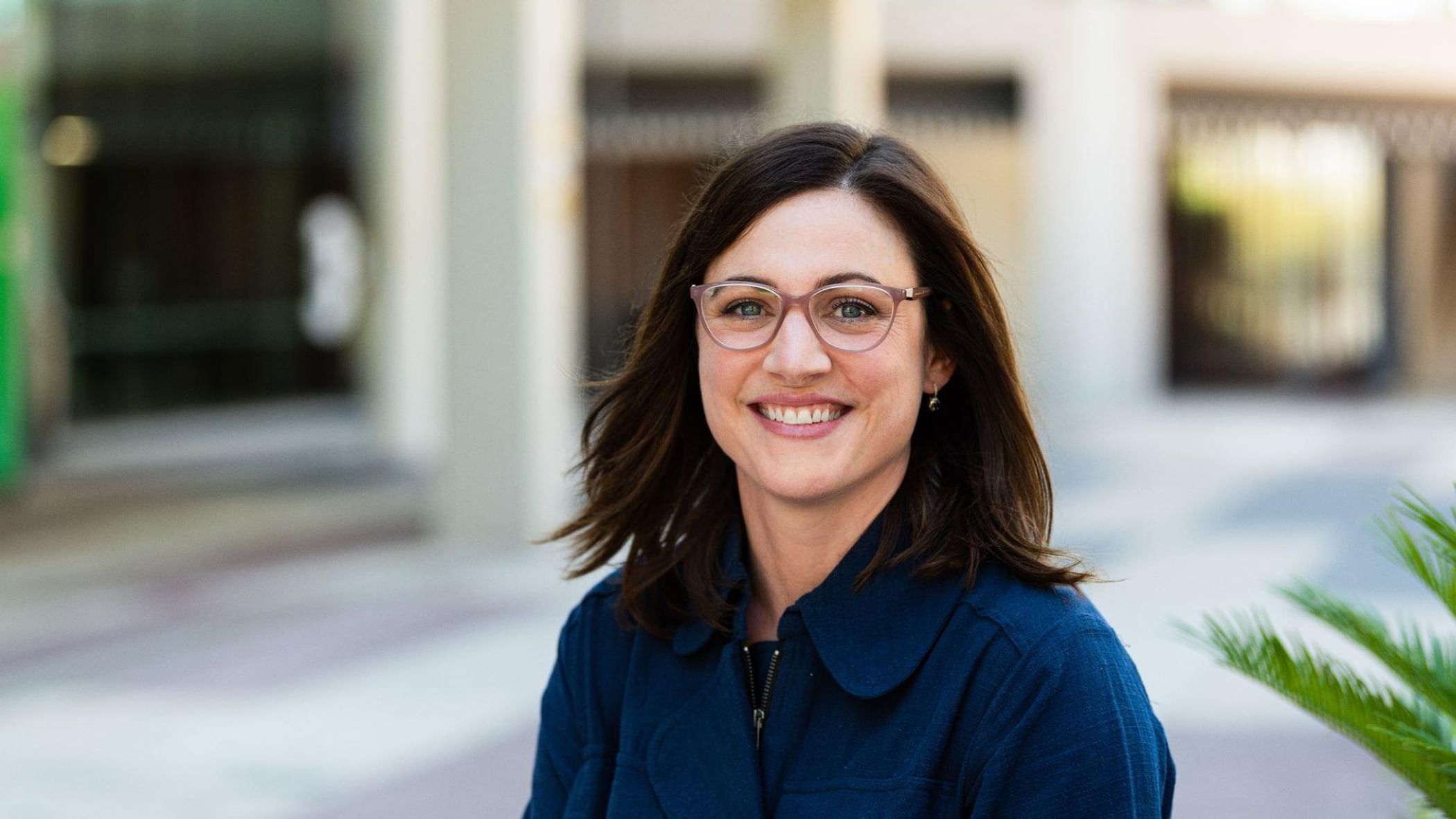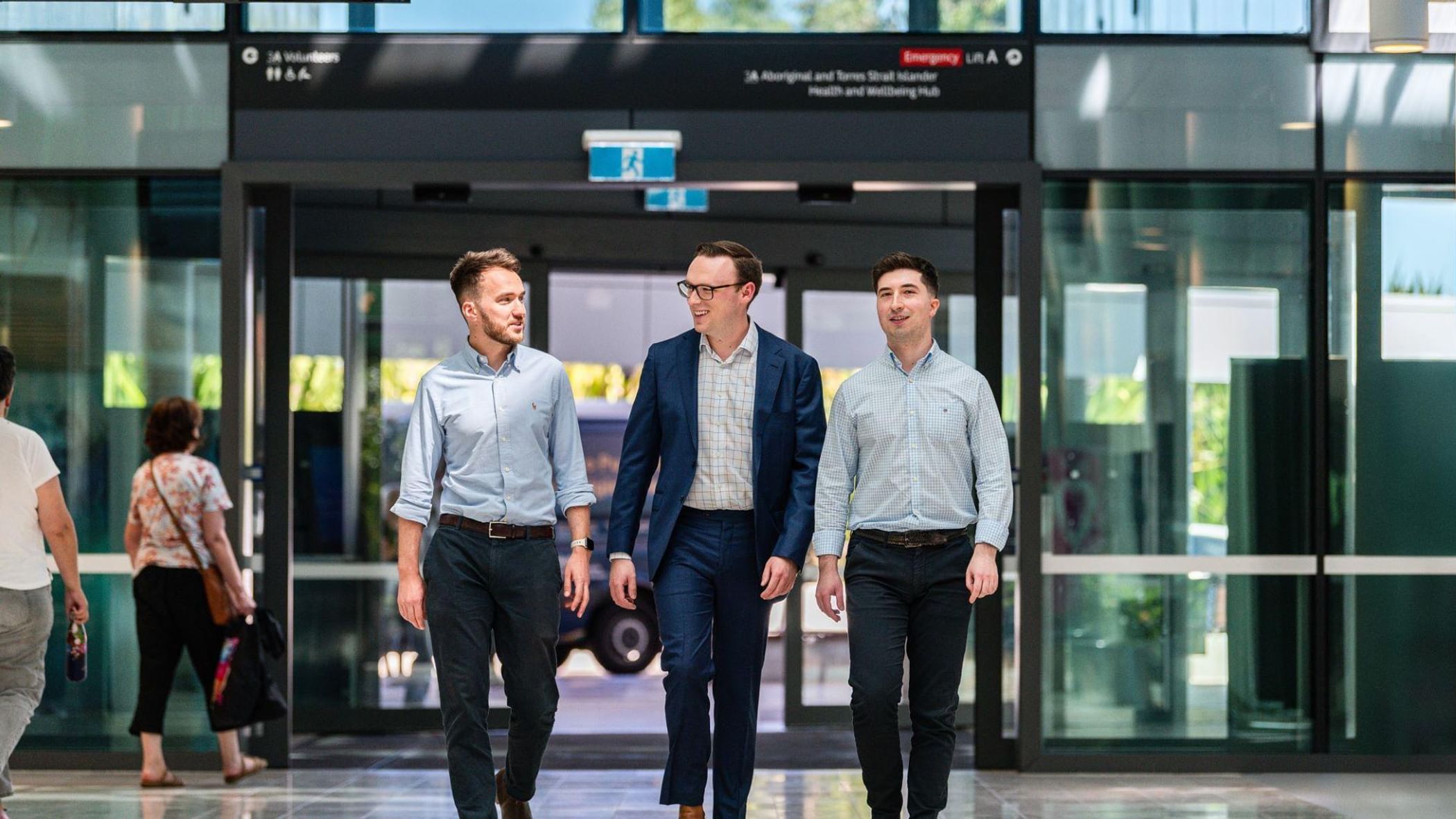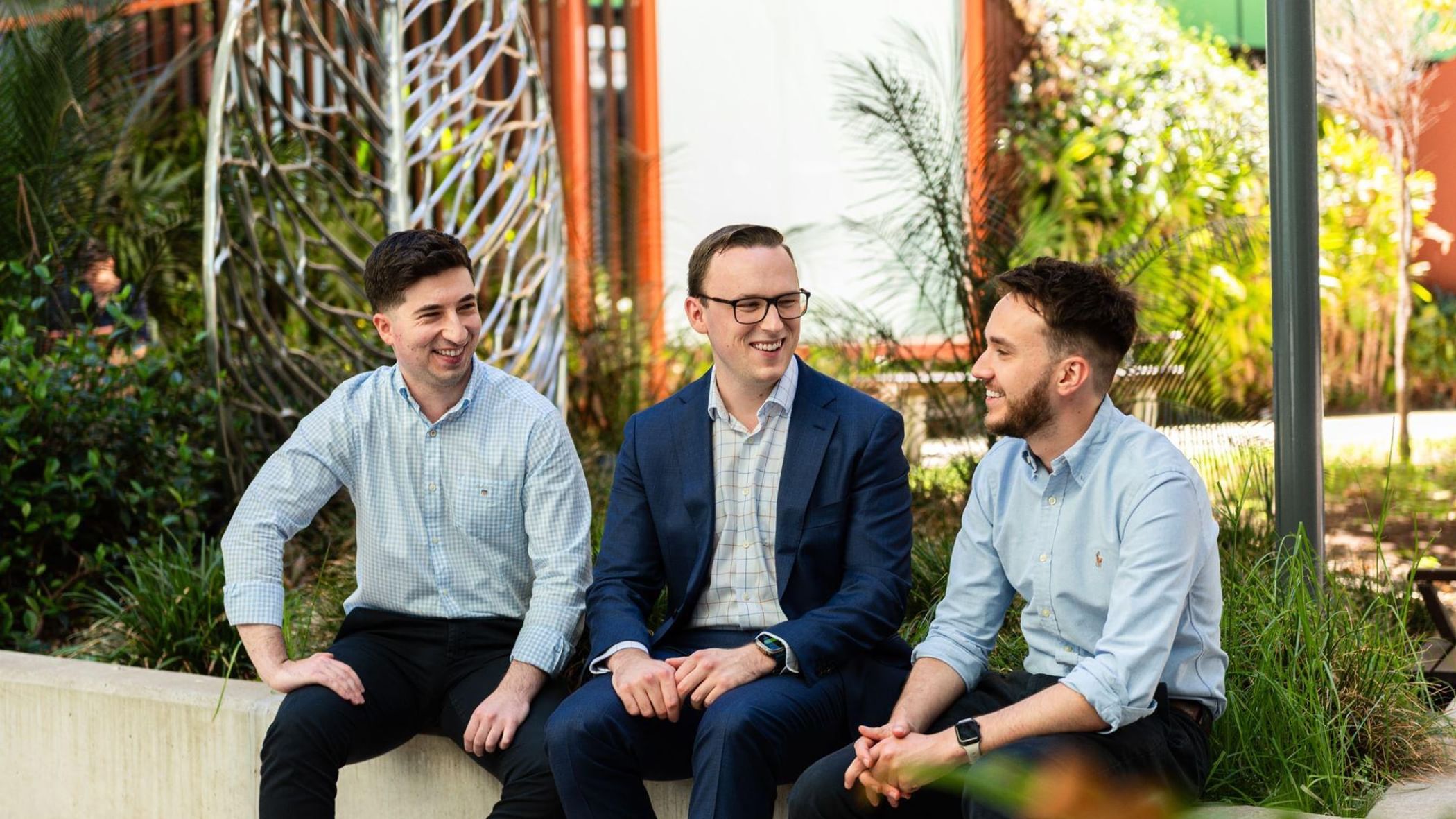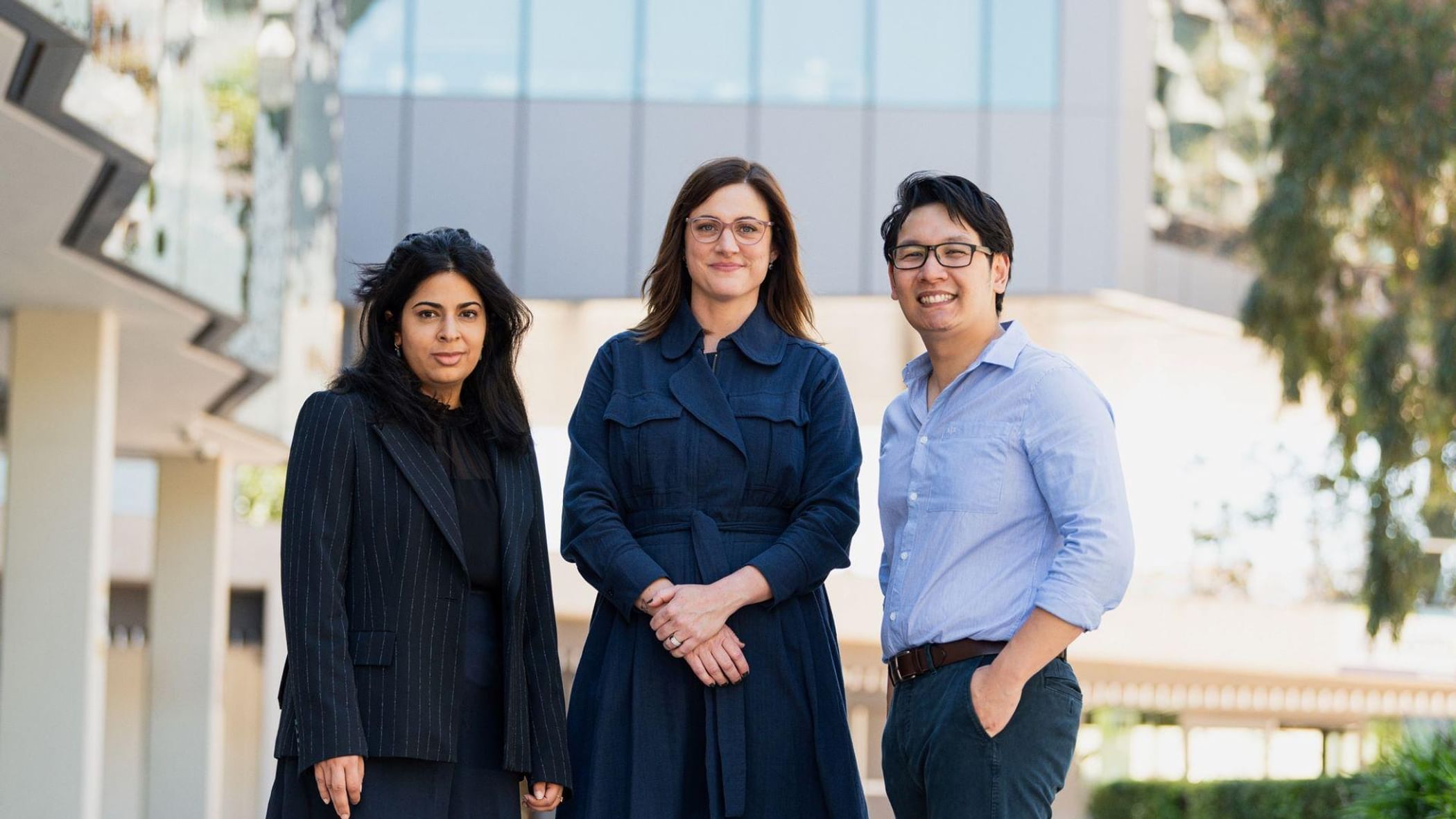CPP frequently asked questions
Find out more about specific selection criteria, fees, available training or application process.
On this page
-
Alice Jay -
2024 Candidates (L - R): Dr Tristan Bampton, Dr Esrom Leaman, Dr Zachary Bunjo, Dr Damjana Bogatic (absent) -
2024 Candidates (L - R): Dr Zachary Bunjo, Dr Esrom Leaman, Dr Tristan Bampton, Dr Damjana Bogatic (absent) -
2025 Candidates (L - R): Dr Momina Allahwala, Alice Jay, Dr Khuyen Hoang, Luke Shepperd (absent)
Below are some of our commonly asked questions. If you are still unsure whether you are eligible to apply for the CPP or if you would like to obtain further information about your personal circumstances, contact our team.
Apply for CPP
We are now accepting applications for 2026. Submission deadline is 30 June, 2026.
Application formSelection and eligibility criteria
Potential candidates must submit their applications between 1 and 30 June 2025. These applications will be screened for eligibility, and each will be reviewed and scored by a panel comprised of CPP mentors. This review process will produce a shortlist of applicants who will be interviewed, most likely during August.
Following the interview stage, four applicants will be offered places in 2026: one medically trained applicant, one nursing trained applicant, one allied and scientific health trained applicant, and one final applicant from any of the three disciplines. We anticipate having the 2026 cohort confirmed by the end of September. All successful candidates will be expected to commence in February 2026.
The application process will rank the shortlisted applicants so that, in case any applicants decline the offer, a next highest ranked applicant may be offered a place. All unsuccessful applicants may request feedback on their applications.
Yes, you are eligible to apply. The program is designed to support applicants from early in their PhD journey.
The CPP is funded through the generous support of the Health Services Charitable Gifts Board, a statutory organisation in South Australia that manages charitable funds, donations, and bequests intended for public health entities and medical research. The CPP’s funding guidelines stipulate all recipients must be employed by CALHN or an organisation that sits under CALHN governance (i.e. Statewide Clinical Support Services) and based at a CALHN clinical site. Unfortunately, if you are employed by other Local Health Networks within South Australia you are ineligible to apply for the CPP.
The program supports doctors that identify as CALHN trainees but need to rotate to other services to complete training requirements.
Yes, you would be eligible. The application process does not limit selection criteria based on the time since graduation. The key factors are your desire to become a clinician researcher and whether it feels like the "right time" for you to pursue a PhD. For some, this might be soon after graduation when they have a specific idea or area of practice they want to focus on. For others, it might be later in their career, after they've begun to specialise and develop expertise, with a clinical research question they'd like to explore. Regardless of career stage you will need to meet the entry criteria for an Adelaide University PhD or be able to meet these criteria with 1 year of 0.2 FTE support.
Yes, you are eligible to apply for the CPP if you are working part-time or full-time as a clinician at CALHN. Clinicians employed on a casual contract are not eligible.
Applying and re-applying
You can apply at any stage of your training. If you start a PhD near the end of training, it is possible that your PhD will carry over into your consultancy. Medical specialty trainees must be in an advanced training post at CALHN during the whole of the first year of the CPP.
Applicants who have previously applied and were unsuccessful may re-apply in any subsequent round.
Training, fees, deferring and work options
While the program is structured to integrate research with clinical training, the eligibility for overseas training depends on the specific requirements of your specialty. If your specialty area allows for overseas training, you will need to ensure that your time abroad aligns with the pathway’s structured timeline and mentorship requirements. Please get in touch to discuss this further.
If you are completing a Masters of Philosophy (MPhil) and intend on ‘upgrading’ to a PhD, you may apply for the CPP. You may have the option to enter the program at Year 2, depending on your progress in the MPhil. The pathway includes both full-time and part-time options, allowing candidates to balance clinical work with their PhD studies. Please note that the Adelaide University PhD Program places restrictions on the timing of upgrade to PhD from Masters and this may delay your ability to transition to a full-time Adelaide University Scholarship.
The CPP is a partnership between CALHN and The University of Adelaide. As part of the program, all candidates undertaking a PhD on a full-time or part-time basis will not be required to pay tuition fees.
Successful applicants can undertake their PhD studies on a part-time basis to accommodate advanced medical training or to better suit their personal circumstances. The CPP is able to top up this portion of your clinical salary and cover your tuition fees to allow you to undertake the PhD. Within a part-time The University of Adelaide PhD you must meet the requirement for 0.5 FTE for study.
Training and workshops will be offered to CPP candidates throughout the pathway. In addition, limited financial support for relevant professional development activities is also available to CPP candidates.
Application for periods of leave with the purpose of deferring the completion of the PhD will not be approved unless exceptional circumstances exist. In addition, Adelaide University Research Scholarships are not transferable to another university and leave does not extend the scholarship. Formally moving to part-time from full-time will end a full-time The University of Adelaide Scholarship, however you may be able to continue your PhD under part time CALHN-based support.
To be eligible to enter the CPP, you must be a CALHN clinician at the time of application. You must also continue to be clinically employed at CALHN throughout Year 1 of the CPP. Once you are enrolled in the PhD (i.e. years 2-4 of the CPP), you may work privately or outside of CALHN during the non-PhD time.
Contact us
Clinician PhD Pathway
- Mentorship
- Guidance
- Specialist training


This page was last updated 29 May 2025.



